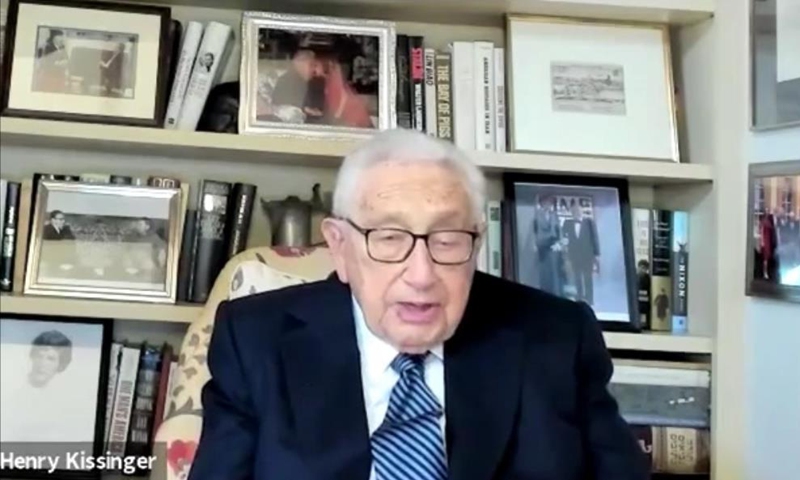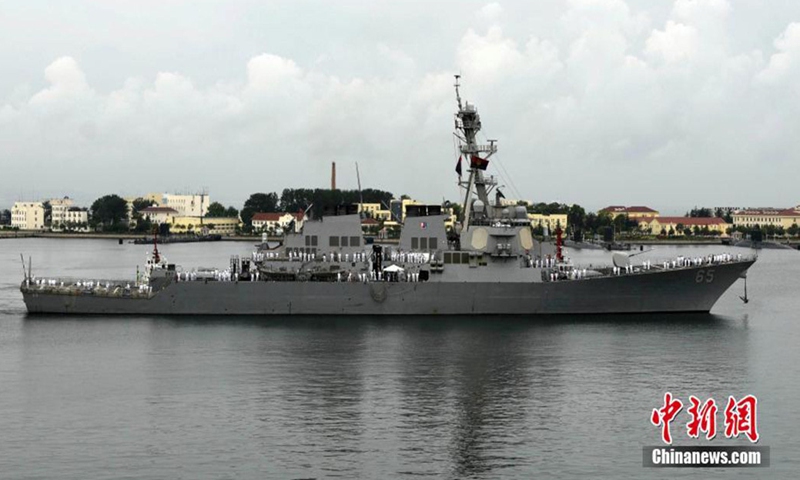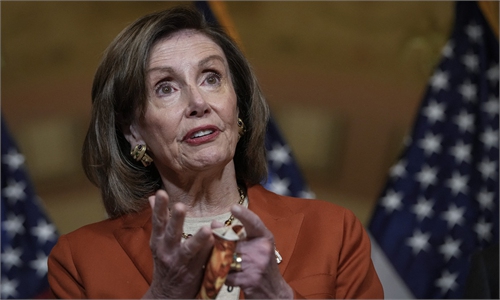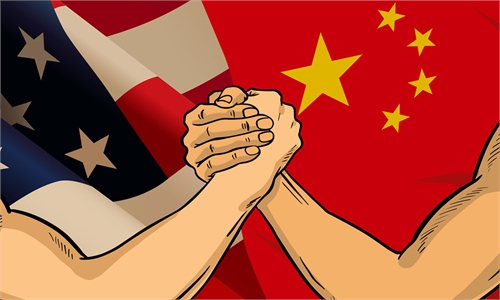Kissinger warns Biden on China ties amid Washington's enhanced provocations against Beijing; consequences would be 'fatal, unbearable' for Biden
China needs to prepare for 'sudden changes' in bilateral ties; incidents 'worse than 2001 Hainan midair collision' might occur

Photo: Henry Kissinger

USS Benfold DDG-65 file photo:cnsphotos
The Joe Biden administration has been testing China's bottom line on bilateral relations and the Chinese mainland's staunch determination to reunify with Taiwan island with more frequent maritime provocations and US politicians' interactions with the Taiwan authorities, Chinese observers said Wednesday. They said that the consequences for the Biden administration would be fatal and unbearable if it continues on this path.
They believe former US secretary of state Henry Kissinger is warning Biden against "endless confrontation" with China was because he perceives this to be true.
With the Democratic Party facing great headwinds in the midterm elections amid Biden's new low public approval rate, Chinese observers warned that the Biden administration would enhance provocations against China, and that China needs to prepare for sudden changes in the bilateral relations that might happen overnight, and that incidents even more serious than the 2001 midair collision involving a US plane and a Chinese fighter jet near Hainan Province might occur.
In an interview with Bloomberg on Tuesday, 99-year-old Kissinger said geopolitics today requires "Nixonian flexibility" to help defuse conflicts between the US and China as well as between Russia and the rest of Europe, and Biden should be wary of letting domestic politics interfere with "the importance of understanding the permanence of China."
He said it is important to prevent Chinese or any other country's hegemony, but that is not something that can be achieved by endless confrontations, according to Bloomberg.
The same day as Kissinger gave out his warning, the USS Benfold, a US Navy destroyer, made a transit of the Taiwan Straits, the third provocative maritime activity by the warship near China in just one week, with analysts believing it is rare that a US warship would consecutively sail into waters off the Xisha Islands, Nansha Islands and then through the Taiwan Straits. They said such actions will probably become routine as the US is enhancing its provocations against China.
Similar actions - namely a US warship departing from a base in Yokosuka, Japan, traversing more than one maritime region around China to flex its muscles - will probably become routine, Zhang Xuefeng, a Chinese military expert, told the Global Times on Wednesday, adding that operations like this could lower the cost in provoking China.
Also on Tuesday, the PLA Navy's aircraft carrier Shandong was spotted sailing through the Taiwan Straits, followed by what seemed to be a supply ship, media on the island of Taiwan reported on Wednesday.
US politicians have also tried creating tensions across the Taiwan Straits as media revealed that US House Speaker Nancy Pelosi plans to visit Taiwan in August after an aborted April visit.
Lü Xiang, an expert on US studies at the Chinese Academy of Social Sciences, told the Global Times on Wednesday that the US made increased provocations recently because it is testing China's bottom line on the Taiwan question as they may have doubt about China's strong will of achieving national reunification.
On July 9, Chinese State Councilor and Foreign Minister Wang Yi told US Secretary of State Antony Blinken in Bali that the three China-US joint communiqués are the real "guardrails" for bilateral relations.
The development direction of China-US relations is in danger of being further led astray, Wang said. He noted that the fundamental reason for this is that there is a problem with the US' perception of China, and its China policy based on this perception has naturally deviated from the right track.
Lü said he advised the US not to keep moving on with the test, as the US, whose international prestige is already in a shaky state, would face a fatal blow if its provocations drew a strong reaction from China.
"Kissinger's core message is that the great powers have to find a way to coexist, and endless confrontations would only disrupt the entire international order that was established after WWII," he said, adding that Kissinger's warning to Biden was that he could see the possible fatal consequences.
The sense of crisis and vulnerability of the US government after the failure in the COVID-19 response has somewhat resulted in its current basic diplomatic pattern of flexing its muscles whenever and wherever it can in order to hide its old and fragile image, Lü said.
Biden's Democratic Party is in an increasingly weaker position domestically and internationally, analysts said, especially with the coming of the midterm elections in November.
"I predict that the Democratic Party is for sure going to lose control of the House of Representatives," Lü said, noting that some of the provocative moves from the Biden administration against China comes from a need to help the Democrats save the situation.
According to a Reuters/Ipsos opinion poll on Tuesday, Biden's public approval rating fell to 36 percent this week to tie the lowest rating of his 19 months in the White House, Reuters reported on Tuesday.
Not just on the Taiwan question, the US has repeatedly made groundless accusations on China's human rights issue.
In its annual human trafficking report released on Tuesday, the US listed China as a Tier 3 country on human trafficking and claimed the "use of forced labor" in the China-proposed Belt and Road Initiative.
In response, Chinese Foreign Ministry spokesperson Wang Wenbin said at Wednesday's routine press conference that the US has fabricated the so-called report to deceive the world as it continues to ignore facts, but the reality is that the US is the biggest human trafficking power.
Observers warned that with enhanced provocations from the US, China should be prepared that China-US relations might change at anytime, including some changes that could take place overnight.
Lü said it is likely that incidents worse than the 2001 midair collision near Hainan Province may take place in the future, but China will have to make sure that the consequences of keeping provoking China would be unbearable for the US.



